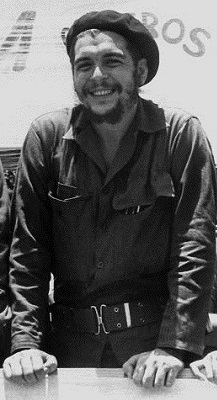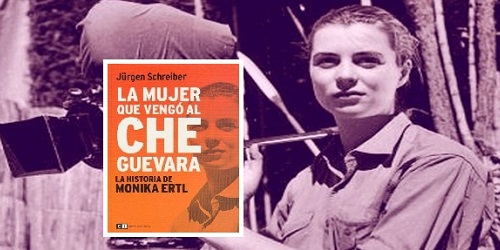|
~ Ernesto Che Guevara
~ Galéria
~ Oldal
~ Bejelentkezés
~ Vissza a Főoldalra
Ernesto Che Guevara, az argentin származású forradalmár, miniszter, gerillavezér és író, Buenos Aires-ben szerzett orvosi diplomát, majd a kubai forradalom során jelentős szerepet játszott a szigetország felszabadításában és újjáépítésében. A kubai gazdaság talpraállításáért dolgozott, küzdött az oktatás és az egészségügy fejlesztéséért, az írástudatlanság és a faji előítéletek felszámolásáért. Saját példájával népszerűsítette az önkéntes munkát. Kongóban és Bolíviában is harcolt - harminckilenc éves volt, amikor az amerikai-bolíviai csapatok csapdába ejtették és kivégezték.
| | |
|

| | |
|
|
Articles about Che Guevara |
|
The woman who took revenge for Che Guevara
2014.01.16. 23:46
|

|
|
The Argentinian website Primera Fuente called the attention of its visitors on a book (The woman who took revenge for Che Guevara) and on the woman in the title, Monika Ertl.
Monika Ertl was born in 1937 in Munich, Germany, then in 1950 the family moved to Bolivia. She was working beside her cameraman father, then she had a short, unhappy mariage with a Bolivian-German mine engineer, while she and her sister, Beatriz adored Che Guevara. Later she had connection to the five survivors of Che's Bolivian campaign, then she became a member of the underground movement, the ELN. She was said to kill the Bolivian colonel, Roberto Quintanilla Pereira in Hamburg - he was the man who ordered that the dead Che Guevara's hands must be cut off and sent to La Paz for further investigation.
Monika died in 1973 when the Bolivian secret police caught and killed her. Her body has never been found.
Source
|
| | |
|
|
|
~ Ernesto Che Guevara
~ Gallery
~ Site
~ Log in
~ Back to the Main page
Ernesto Che Guevara, the Argentine-born revolutionary, minister, guerrilla leader and writer, received his medical degree in Buenos Aires, then played an essential part in the Cuban Revolution in liberating and rebuilding the country. He did his best to set up the Cuban economy, fought for the improvement of the education and the health system, the elimination of illiteracy and racial prejudice. He promoted voluntary work by his own example. He fought in the Congo and in Bolivia - he was thirty-nine years old, when he was trapped and executed by the joint American-Bolivian forces.
| | |
|
|

